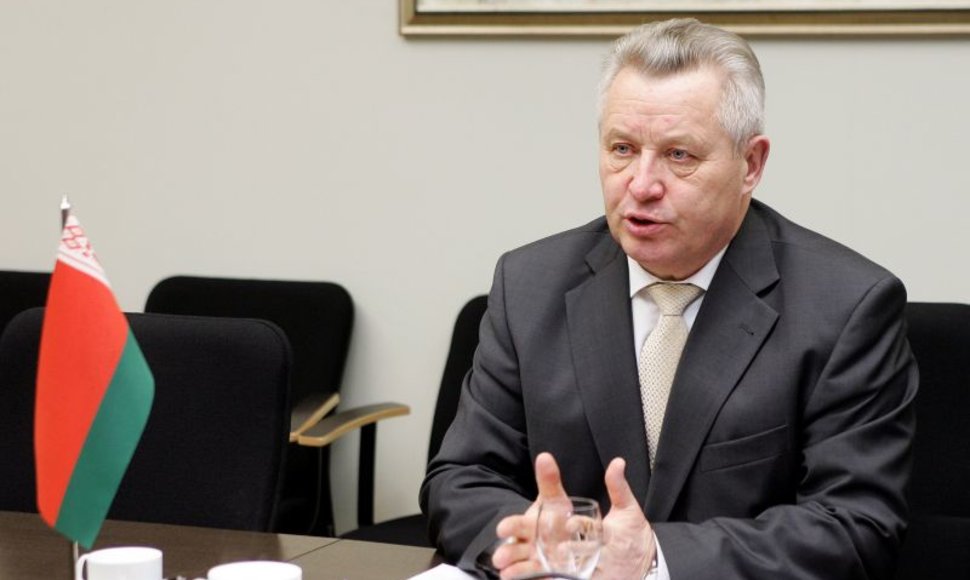The committee said it adopted a resolution on Friday in response to the interview Drazhin gave to Russian news agency Regnum on Wednesday.
The parliamentary body stated that "such statements by an ambassador that clearly violate the universally recognized standards of diplomatic representation do not contribute to the bilateral relations between two neighboring states – Lithuania and Belarus – that would be based on mutual respect and confidence."
In the interview to a Kremlin-linked Russian news agency Regnum, Drazhin warned that Lithuania's support to the EU sanctions against Belarus could jeopardize Belorussian transit via its the port of Klaipėda, which would lead to billions of litas in damages.
"I believe Lithuania understand the consequences of the sanctions for its economy. Here is the data provided by Belorussian and Lithuanian economists. If we terminate the cargo transit via Klaipėda today, Lithuania will lose 7 billion litas (EUR 2.03 b). Should the EU choose the path of giving up Belorussian commodities on foreign markets, (…) Belarus will be forced to take adequate measures," Drazhin said.
"Capacities of the port will become stalling. About 4,500 employees of the Klaipėda port and related companies will be made redundant. Railways will have to give up approximately 3,500 employees. According to preliminary data, the jobless army will swell by 12,000 people. This is a problem of national scale. This is the price of the issue, and Lithuanian politicians should think about the price," the ambassador said.
He noted that the majority of Lithuanian companies disapprove of economic sanctions against Belarus.
Drazhin also noted that Minsk had doubts about the facilitated border travels with Lithuania amid the EU sanctions against the regime of Belarus' hard-line President Alexander Lukashenko.
Lithuania's Foreign Ministry has described the ambassador's statements as biased and incorrect.
The EU is stepping up sanctions against Belarus in protest of persecution of political opponents and human rights restrictions.
Last month, EU foreign ministers decided to impose sanctions against 29 Belarusian companies owned by three businessmen close to the Lukashenko regime, and another 12 people were blacklisted.












